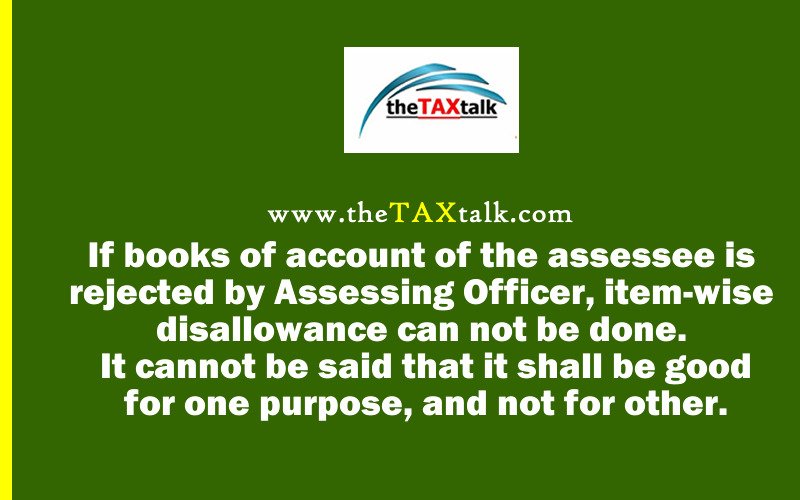![]()
If books of account of the assessee is rejected by Assessing Officer, item-wise disallowance can not be done. It cannot be said that it shall be good for one purpose, and not for other.
Short Overview When AO himself rejected the books of account of assessee after holding that the books did not show true results and made an estimated addition on GP basis, then other item-wise disallowance should not have been made. Therefore, no separate addition of alleged fictitious liability and addition under section 41 were called for and hence, the said additions were liable to be deleted.
AO made addition under section 41 on account of alleged fictitious liability.
It is held that It was clear that books of account of assessee were rejected by AO and GP was estimated. Further, CIT(A) upheld the rejection of books of account and reduced the profit estimation. When the AO himself rejected the books of account of the assessee after holding that the books did not show true results and made an estimated addition on GP basis, then other item-wise disallowance should not have been made. Once books of account are rejected, then it cannot be said that it shall be good for one purpose, and not for other. Therefore, no separate addition of alleged fictitious liability and addition under section 41 could be made and hence, the said additions were accordingly, deleted.
Decision: In assessee s favour
Relied: CIT v. Bahubali Neminath Muttin (2016) 73 taxmann.com 100 (Karn) : 2016 TaxPub(DT) 4096 (Karn-HC).
IN THE ITAT, SURAT BENCH
PAWAN SINGH, J.M. & A.L. SAINI, A.M.
Devyani Tex Chem (P). Ltd. v. ACIT
ITA No. 1009/Ahd/2015
22 June, 2021
Assessee by: Sapnesh Sheth, CA
Revenue by: Anupama Singhla, Sr. DR
ORDER

